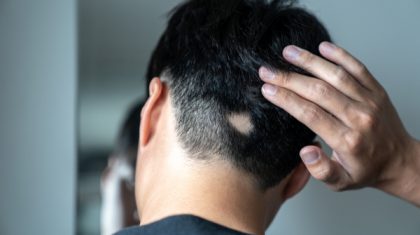It is common knowledge that diabetes can slow down hair growth. If you are suffering from diabetes then you might lose more hair on your legs, arms & other body parts. But when hair regrows, it does at a slower rate than the normal rate. Individuals with illness are more likely to have a condition known as Alopecia Areata. Diabetes and Alopecia Areata are closely associated. With this disease, the immune system affects the hair follicles, thus, resulting in patches of hair loss on different body parts.

Understanding Alopecia Areata
Alopecia Areata is the unpredictable hair loss disorder that affects around 3% of the people all around the globe. Researchers are continuously working to discover the major causes, diagnosis and treatment for this disease. The treatment has experienced tremendous progress in the recent 10 years. Several researches have been made on the disease resulting in the outcome of various facts. Also, the procedure is still ongoing. Well, it is always recommended to visit an expert in case you feel you have any of the symptoms of this disease.
Alopecia Areata influences the development of hairs. Resting follicles escape the destruction. Hence truncating the growth phase of hairs prevents the whole destruction of hair follicles.
Generally, Alopecia Areata triggers the hair follicles to enter into a telogen resting state to prevent the worst effects of the disease. And this causes significant shedding. The hair follicles typically stay in this resting state for prolonged periods of time.
Treatment
If the hair follicles try to return to an anagen growth state the immune system re-targets the hair follicles and strengthens them back into a resting state. The cure of this disease is partly based on this information. The objective is to reduce the action of the immune cells on the hair follicles & to encourage the resting hair follicles back into new growing activity.
Excessive sugar can even damage the most vital organs of the body, like nerves, kidney, eyes and various others. You would be surprised to know that it can even damage your blood vessels. These vessels transmit oxygen around the body to nurture tissues & organs. Spoiled blood vessels would not be able to bring enough oxygen to nurture the hair follicles.
So, it is important to keep a close check on your blood sugar levels. This can be done by usingglucometerthat is available on the market and also can be purchased online. Regular blood sugar monitoring is the key to diabetes management.




